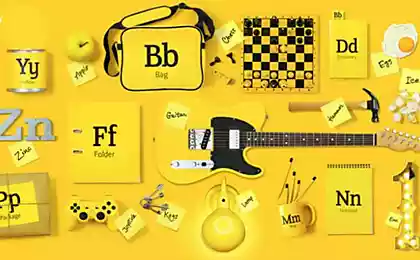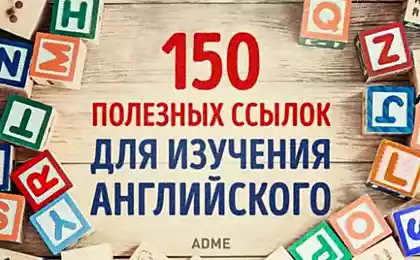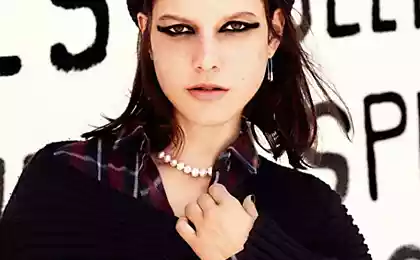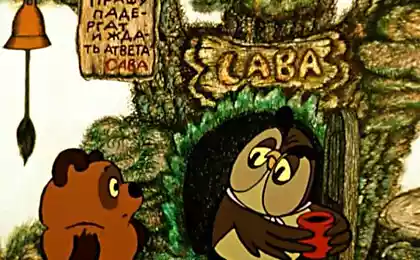239
What fashionable words are not included in the dictionary of literacy, so say only without learning
Our speech is full of parasites and this has been said many times by everyone who is not lazy. Like, you can not consider yourself a cultured person, if you skip there all sorts of “tavo, etavo”. It is noteworthy that the vocabulary is squeezed and buzzwordThe meaning of which is not always clear to us. We decided to take a couple of them apart.
We're in the newsroom. "Site" We do not believe that so-called "parasites" can be a marker of incivility. The fact is that not only language itself evolves, but also our thinking. Have you ever heard of “clip consciousness”? It's from this series. Here's our little overview.
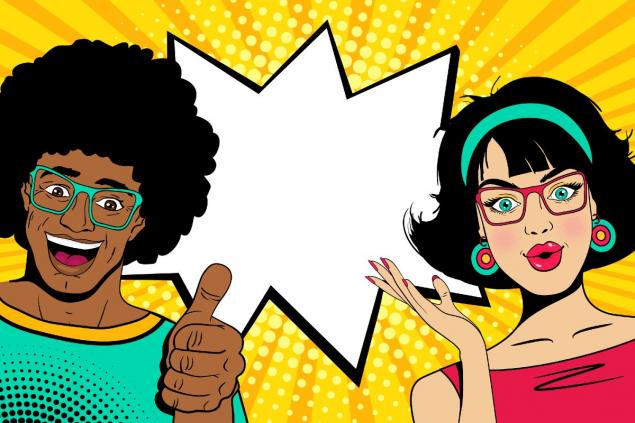
Let’s not talk about ethics, but think about the words that sit firmly in our heads and give us a certain degree of illiteracy. It is believed that educatedIt is endowed with developed intelligence, able to express their thoughts without additional connections. That is, his vocabulary is enough to accurately voice his thought.
However, this depends not only on intelligence, but also on the conditions in which a person is. Here's your name, for example, in a TV interview. You think what's wrong with that? But when cameras and lights are pointed at you, you suddenly realize that you are very nervous. Here the host asks you a question and you answer something like this: "Well... This is... Like, Emme ..."

Let’s take this as a starting point and imagine that the person is talking to you for the first time and is a little shy. This is a reason to forgive him all these “as it were”, “in general”, “here”, etc. But we do not recommend forgiving words like those we will talk about below. Because decent Society tends to avoid them.
Parasitic words are inappropriate for any masturbation. Naturally, we cannot use these words in this article. However, it is not difficult to guess what is meant. No, there are cases when intellectuals allow themselves pepper. But it usually happens in a circle of friends, in public you will not find this. So mat is bad and good for nothing. But times have changed and no one will be surprised. You can even hear it on TV.


Really.
It's also a pretty famous parasite that lives in our conversations. I'd even say real. A substitute for close concepts such as “really” or “really.” As if it gives more weight (here "as if" - not a parasite!). Funny.
It makes no sense to understand the roots, this word has long been familiar to everyone and firmly entrenched in the language. In fact, it expresses surprise (approval) and should not be confused with its meaning. It can be both negative and positive. There is a great word in Russian that correctly conveys emotion. That word is "amazing." Obviously! Score.
Give up something. For example, "I gave up on school." It also shows the level of interest. That is, “I refused to study” or “Study interests me little.” The word is vulgar, so watch it.
Nice.
It is something “good” and means “good.” For example, you are going to visit your friends, and they have already stocked up “nishtyaks”. So it's about food. But on the whole, it could mean "everything's going to be fine," okay. The word is jargon, and therefore we recommend avoiding it and speaking directly, saying that we have delicious food here and everything will be fine! Eat.
There is no point in explaining what this word means, everyone knows it. In an intelligent society, it can not be used and, by the way, it is quite parasitic. We should avoid it. WOULD
This word is also a parasite, which skillfully disguises itself in other words, but significantly changes the meaning of what was said. For example, “I want to congratulate you” instead of “I want to congratulate you.” Otherwise, you want to congratulate, but not that much? You don’t have to “bug” again, just talk about what you want to do.
Honestly.
Your humble servant, sometimes, also sins with this phrase. The context should be such that there is no doubt about what the person is saying. No doublethink. With this phrase, it is better to emphasize your emotion when you want to convey feelings. “To be honest, I chickened out when I tried to tell you I loved you.”
A few new fashion words that are definitely worth mentioning. In youth slang, they can parasitize for a long time, but “olds” (people aged) may not understand anything. They came to us from English-American slang, which often sounds in popular TV series and finally runs in computer streams. Where else would they come from? Okay.


GettyImages
flex
In short, it is about bragging and bragging. So flexing is all about demonstrating success and involvement in a luxurious life. All for status! So if you see someone bragging about new things (for example), it will be a flex on a teenager. By default.
This is a direct tracing of the English word default. In Russian it is translated as “by default”. Let’s say that while eating, you constantly drop something fat on your pants, and this happens so often that it is not even annoying. That is, it occurs “by default”. Or, for example, “he defaults at this time there are no rodents.”
Editorial of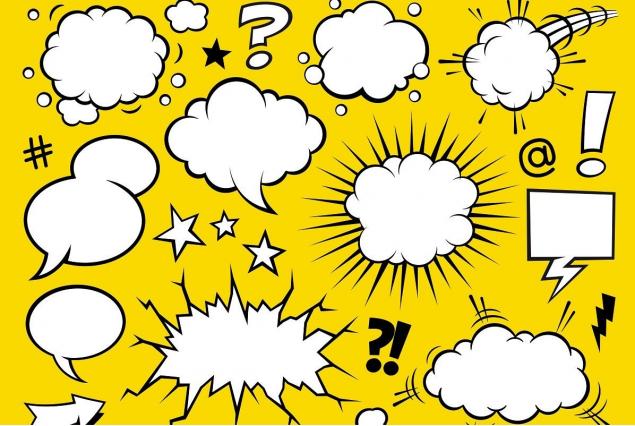
We would sincerely appreciate it if you add to our dictionary some words that seem parasitic or completely incomprehensible to you. Together, we will compile a dictionary that will help us, firstly, to avoid uncomfortable situations, and secondly, to accurately understand other people. It's never too late to learn!
Fashionable words It’s always appearing in our language, and we think it’s time to look at a few of them. To make the speech exceptionally correct! Read our test article to see if you remember any of the rules of the Russian language. Thank you for staying with us!
Photo preview and article .
We're in the newsroom. "Site" We do not believe that so-called "parasites" can be a marker of incivility. The fact is that not only language itself evolves, but also our thinking. Have you ever heard of “clip consciousness”? It's from this series. Here's our little overview.

Let’s not talk about ethics, but think about the words that sit firmly in our heads and give us a certain degree of illiteracy. It is believed that educatedIt is endowed with developed intelligence, able to express their thoughts without additional connections. That is, his vocabulary is enough to accurately voice his thought.
However, this depends not only on intelligence, but also on the conditions in which a person is. Here's your name, for example, in a TV interview. You think what's wrong with that? But when cameras and lights are pointed at you, you suddenly realize that you are very nervous. Here the host asks you a question and you answer something like this: "Well... This is... Like, Emme ..."

Let’s take this as a starting point and imagine that the person is talking to you for the first time and is a little shy. This is a reason to forgive him all these “as it were”, “in general”, “here”, etc. But we do not recommend forgiving words like those we will talk about below. Because decent Society tends to avoid them.
Parasitic words are inappropriate for any masturbation. Naturally, we cannot use these words in this article. However, it is not difficult to guess what is meant. No, there are cases when intellectuals allow themselves pepper. But it usually happens in a circle of friends, in public you will not find this. So mat is bad and good for nothing. But times have changed and no one will be surprised. You can even hear it on TV.

- Dream come true!
This can easily be seen on a postcard that colleagues gave for their birthday. Well, if they do. They can say it out loud! There is, of course, something ironically funny about this, but it is so wrong. "May dreams come true!" That's right. - Birthday
It's the right thing to do. Of course, there is no "birthday", namely "birthday". You don’t answer the question, they say, I’m on the birthday (and where is it, the bottom of the birth?), but you say, “I’m on the birthday!” - Cool.
This word is often heard in jargon and it is important to understand what it actually means. Now everyone thinks that “cool” is good. But in general, “cool”, it is rather unexpected. You see a lady in a luxurious dress and you say, "Wow, cool!" So I didn't expect it. It’s better to say, “I didn’t expect it, it suits you very well.”

Really.
It's also a pretty famous parasite that lives in our conversations. I'd even say real. A substitute for close concepts such as “really” or “really.” As if it gives more weight (here "as if" - not a parasite!). Funny.
It makes no sense to understand the roots, this word has long been familiar to everyone and firmly entrenched in the language. In fact, it expresses surprise (approval) and should not be confused with its meaning. It can be both negative and positive. There is a great word in Russian that correctly conveys emotion. That word is "amazing." Obviously! Score.
Give up something. For example, "I gave up on school." It also shows the level of interest. That is, “I refused to study” or “Study interests me little.” The word is vulgar, so watch it.

Nice.
It is something “good” and means “good.” For example, you are going to visit your friends, and they have already stocked up “nishtyaks”. So it's about food. But on the whole, it could mean "everything's going to be fine," okay. The word is jargon, and therefore we recommend avoiding it and speaking directly, saying that we have delicious food here and everything will be fine! Eat.
There is no point in explaining what this word means, everyone knows it. In an intelligent society, it can not be used and, by the way, it is quite parasitic. We should avoid it. WOULD
This word is also a parasite, which skillfully disguises itself in other words, but significantly changes the meaning of what was said. For example, “I want to congratulate you” instead of “I want to congratulate you.” Otherwise, you want to congratulate, but not that much? You don’t have to “bug” again, just talk about what you want to do.

Honestly.
Your humble servant, sometimes, also sins with this phrase. The context should be such that there is no doubt about what the person is saying. No doublethink. With this phrase, it is better to emphasize your emotion when you want to convey feelings. “To be honest, I chickened out when I tried to tell you I loved you.”
A few new fashion words that are definitely worth mentioning. In youth slang, they can parasitize for a long time, but “olds” (people aged) may not understand anything. They came to us from English-American slang, which often sounds in popular TV series and finally runs in computer streams. Where else would they come from? Okay.

- kringe
It's kind of embarrassing or embarrassing. In Russian there is an analogue that sounds like “Zashkvar”. Spanish shame, in general. So if you hear a teenager say it's kringe, someone is doing something shameful. - rofl
“Olds” remember the expression “under the table”. Of course not everyone. The word "rofl" means a joke, a joke, something ironic that can be pronounced with a serious face, but it causes laughter. So, if a teenager says that someone is “roflit”, then now he is mocking, trolling. - chill
Or rest. More often used as "chillite", that is, walk, relax, relax and enjoy life in every possible way. A teenager who says to someone on the phone in front of you, saying "go chill", it means "let's go for a walk." That's it!

GettyImages
flex
In short, it is about bragging and bragging. So flexing is all about demonstrating success and involvement in a luxurious life. All for status! So if you see someone bragging about new things (for example), it will be a flex on a teenager. By default.
This is a direct tracing of the English word default. In Russian it is translated as “by default”. Let’s say that while eating, you constantly drop something fat on your pants, and this happens so often that it is not even annoying. That is, it occurs “by default”. Or, for example, “he defaults at this time there are no rodents.”
Editorial of

We would sincerely appreciate it if you add to our dictionary some words that seem parasitic or completely incomprehensible to you. Together, we will compile a dictionary that will help us, firstly, to avoid uncomfortable situations, and secondly, to accurately understand other people. It's never too late to learn!
Fashionable words It’s always appearing in our language, and we think it’s time to look at a few of them. To make the speech exceptionally correct! Read our test article to see if you remember any of the rules of the Russian language. Thank you for staying with us!
Photo preview and article .
Gypsy Chicken Heart Recipe, But No Stolen Chicken Recipe
Why you can't stop a child from bringing home homeless kittens









